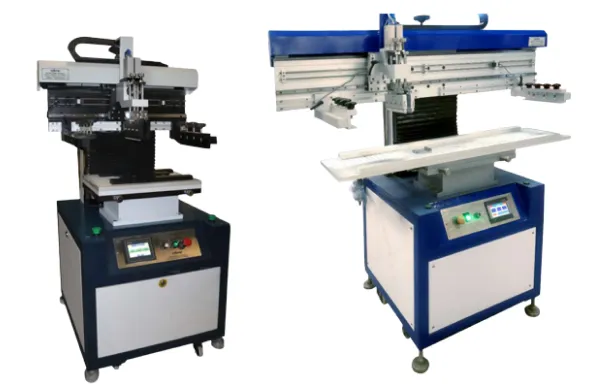In the world of electronic production, accuracy, effectiveness, and rapidity are critical. The PCB assembly machine is one of the main technologies propelling this growth. These advanced devices have revolutionized the process of assembling electronic components into printed circuit boards (PCBs), resulting in increased product reliability, faster production cycles, and better quality control. We’ll dive into the world of PCB assembly machines in this article, looking at their features, advantages, and effects on the electronics sector.
Comprehending PCB Assembly Equipment:
Automated devices called PCB assembly machines are made to precisely and consistently insert electrical components onto printed circuit boards. They can precisely handle a wide range of components, from surface-mount devices (SMDs) to through-hole components, thanks to their sophisticated robotics, vision systems, and software algorithms.
Important attributes and features
- Component Placement: Pick-and-place mechanisms allow PCB assembly machines to precisely put components onto PCBs. Modern machinery can handle parts with different dimensions, forms, and levels of complexity, guaranteeing precise placement.
- Vision Systems: During the assembly process, PCB assembly machines can inspect components, confirm placement accuracy, find flaws, and guarantee alignment thanks to integrated vision systems. Rework is reduced and good standards are upheld as a result.
- Soldering Capabilities: Some PCB assembly machines are equipped with soldering capabilities, such as reflow ovens or wave soldering systems, to create reliable solder joints between components and PCBs. This ensures robust electrical connections and thermal stability.
- Component Verification: Before and after placement, PCB assembly machines can verify component presence, orientation, and polarity to prevent assembly errors and ensure compliance with design specifications.
- Flexibility and Scalability: Modern PCB assembly machines are designed for flexibility and scalability, allowing manufacturers to handle diverse PCB layouts, production volumes, and product variations. They can be easily reconfigured for different assembly tasks and accommodate changes in production requirements.
Benefits of PCB Assembly Machine
- Increased Efficiency: PCB assembly machines automate time-consuming manual tasks, leading to faster assembly cycles, reduced production lead times, and higher throughput rates. This efficiency gain translates into cost savings and improved productivity for manufacturers.
- Enhanced Accuracy and Quality: The precision and consistency of PCB assembly machines result in accurate component placement, reduced error rates, and improved overall product quality. This is crucial for meeting stringent industry standards and customer expectations.
- Cost-Effective Production: By minimizing material wastage, optimizing production processes, and reducing labor costs, PCB assembly machines contribute to cost-effective manufacturing operations. They also enable batch processing and Just-In-Time (JIT) production strategies, further optimizing resource utilization.
- Adaptability to Complex Designs: With the ability to handle complex PCB layouts, miniaturized components, and high-density assemblies, PCB assembly machines empower manufacturers to realize innovative product designs and technological advancements.
- Reliability and Consistency: Consistent assembly processes, reliable component placements, and thorough quality control mechanisms ensure that assembled PCBs meet reliability standards and perform consistently over their lifecycle.
Impact on the Electronics Industry
The adoption of assembly machines has had a profound impact on the electronics industry:
- Accelerated Product Development: Faster assembly cycles enable rapid prototyping, iterative design improvements, and shorter time-to-market for new electronic products.
- Improved Product Quality: Enhanced quality control mechanisms and precise assembly techniques result in products with higher reliability, reduced failure rates, and increased customer satisfaction.
- Cost Optimization: Efficient production processes, reduced rework, and minimized defects lead to cost savings across the manufacturing value chain, benefiting both manufacturers and end-users.
- Technological Innovation: PCB assembly machines support the integration of advanced technologies such as IoT (Internet of Things), AI (Artificial Intelligence), and 5G connectivity into electronic devices, driving innovation and market competitiveness.
- Sustainable Manufacturing Practices: By optimizing resource utilization, minimizing waste, and reducing energy consumption, PCB assembly machines contribute to sustainable manufacturing practices and environmental stewardship.
Future Trends and Developments
The evolution of assembly machines continues with ongoing advancements in technology, including:
- Integration of AI and Machine Learning: AI-powered algorithms enhance machine vision, optimize assembly processes, and enable predictive maintenance for improved operational efficiency.
- IoT Connectivity and Data Analytics: IoT-enabled PCB assembly machines gather real-time production data, monitor machine performance, and support data-driven decision-making for continuous process improvement.
- Industry 4.0 Integration: PCB assembly machines are becoming integral components of smart factories, leveraging connectivity, automation, and digitalization to create agile and adaptive manufacturing environments.
In conclusion, PCB assembly machines are at the forefront of innovation in electronics manufacturing, driving efficiency, quality, and technological advancement. As the electronics industry continues to evolve, these machines will play a pivotal role in shaping the future of electronic devices, from consumer electronics to industrial applications.

